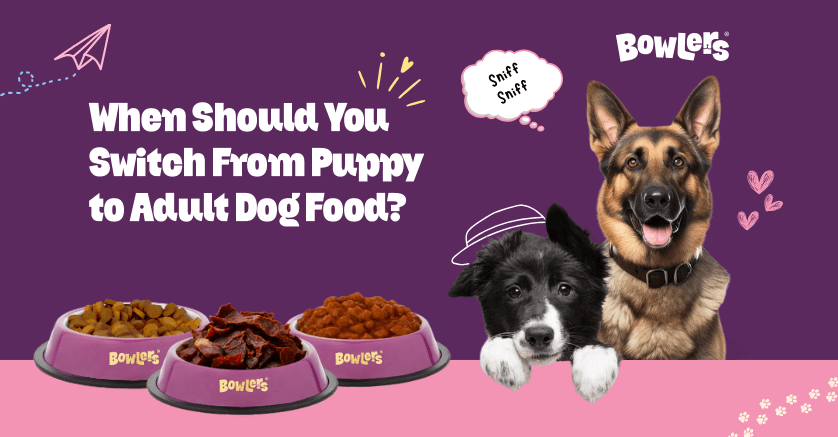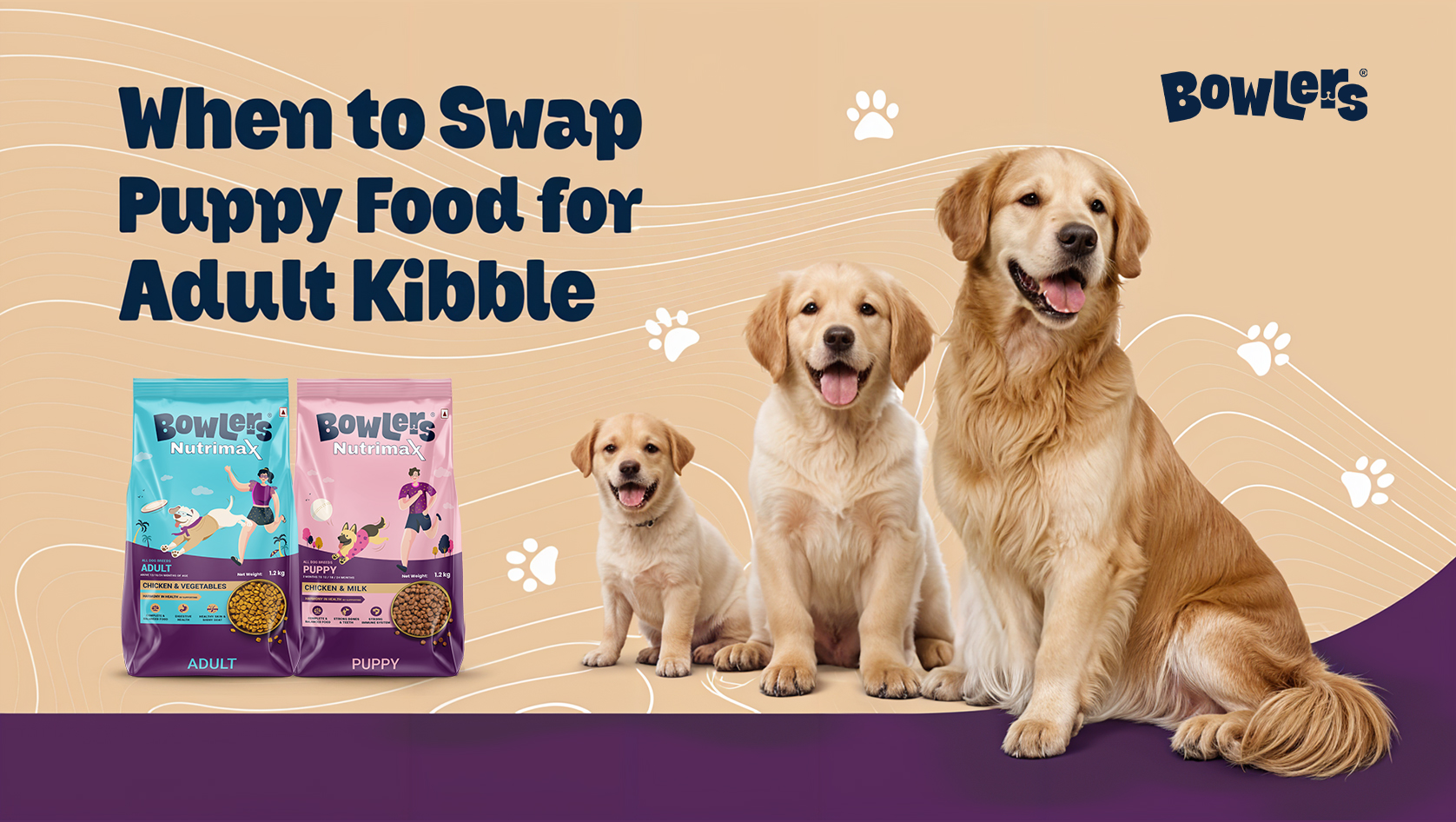When Should You Switch From Puppy to Adult Dog Food?

Switching your puppy from growth-focused food to adult dog food is one of the most important nutritional milestones in their life. Feeding the right formula at the right time supports lifelong wellness, muscle strength, and ideal weight management.
Bowlers Dog Food is specially formulated to meet the nutritional needs of mature dogs, making it a trusted choice when your pup is ready to make the change.
Why Timing Matters in Puppy Food Transition
Puppy food contains extra protein, fat, and minerals that support rapid growth, brain development, and bone health. As your dog matures, their nutritional needs change, switching too early can cause nutrient gaps, while switching too late risks excess weight and joint stress.That’s why it’s important to watch for puppy food transition signs rather than relying solely on age. When the time comes, transitioning to a balanced formula like Bowlers Adult Dog Food helps maintain lean muscle, support joint health, and prevent unnecessary weight gain.
How Puppy Food Differs from Adult Dog Food
Understanding the nutritional differences helps clarify why timing matters:
- Higher Protein & Fat: Puppies need more to build muscle and sustain energy.
- Elevated Calcium & Phosphorus: Supports rapid bone growth.
- Calorie Density: Meets higher energy demands of growing pups.
- Essential Fatty Acids (like DHA): Aid brain and eye development.
Bowlers Adult Dog Food is formulated for maintenance rather than growth, helping to keep your dog fit, active, and healthy without overloading them with unnecessary calories.
Signs Your Puppy is Ready for Adult Food
Look for these maturity cues before switching:
- Growth has noticeably slowed or plateaued
- Energy levels are more balanced
- Adult teeth have fully come in
- Appetite is steady and digestion is healthy
When these signs appear, a gradual transition to Adult Dog Food can help your dog adapt easily without digestive issues.
How to Switch Puppy Food to Adult Dog Food
A smooth changeover helps protect your dog’s digestion:
- Days 1–2 → 75% puppy food, 25% adult food
- Days 3–4 → 50% puppy food, 50% adult food
- Days 5–6 → 25% puppy food, 75% adult food
- Day 7 → 100% adult food
Using Bowlers Adult Dog Food during this transition ensures your dog receives high-quality protein, digestible grains, and balanced nutrients without sudden dietary shocks.
Breed Size Matters: Tailoring the Transition
Small, medium, and large breeds mature at different rates and this affects feeding schedules. Large breeds in particular may need puppy food for longer.
For guidance tailored to your dog’s size, see: Small, Medium, Large Dogs: When to Swap Puppy Food for Adult Kibble
Common Mistakes to Avoid
- Switching too early → Nutrient deficiencies
- Switching too late → Weight gain and joint strain
- Abrupt switching → Digestive upset
- Ignoring breed differences → Poor nutritional balance
Tips for a Smooth Transition
- Keep mealtimes consistent
- Avoid unnecessary treats during the transition
- Monitor stool quality and appetite
- Choose a premium adult dog food to make the switch worth it
Switching from puppy to adult dog food is a major milestone that impacts your dog’s health, mobility, and happiness. Recognizing the right timing and using a gradual changeover with Adult Dog Food ensures your dog enjoys the perfect balance of nutrition for an active, healthy adulthood.
FAQs:
Q1: What are the first signs to switch dog food from puppy to adult formula?
A1: Look for a slowdown in growth, steadier energy levels, a proportional body shape, and adult teeth. These puppy food transition signs are often more reliable than age alone.
Q2: Can I change my puppy’s food without causing stomach upset?
A2: Yes, follow a gradual dog food transition guide over 7–10 days, increasing adult food while reducing puppy food to help your dog’s digestive system adapt smoothly.
Q3: What happens if I switch dog food too early?
A3: Transitioning before your puppy is ready can lead to nutrient deficiencies, especially in protein, calcium, and healthy fats, which are critical for growth and development.
Q4: What if I wait too long to transition my dog to adult food?
A4: Keeping a dog on high-calorie puppy food for too long can cause excess weight gain, joint strain, and digestive issues. Watch for puppy growth milestones instead of relying solely on age.(cluster 1 link)
Q5: How do puppy behavior changes indicate food readiness?
A5: Mature behavior such as calmer play sessions, consistent appetite, and reduced hyperactivity often signals that your dog may be ready for adult dog food.


